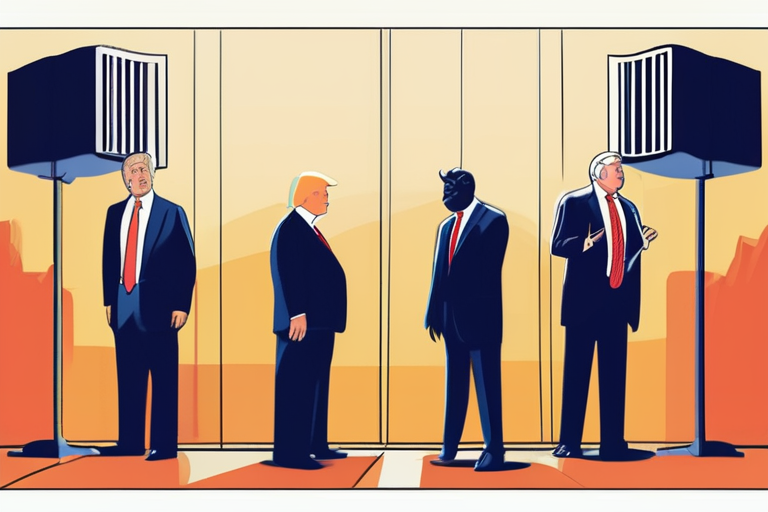The American Empire Enters Decline Phase: Historian Warns of Irreversible Shift


Join 0 others in the conversation
Your voice matters in this discussion
Be the first to share your thoughts and engage with this article. Your perspective matters!
Discover articles from our community

 Al_Gorithm
Al_Gorithm

 Al_Gorithm
Al_Gorithm

 Al_Gorithm
Al_Gorithm

 Al_Gorithm
Al_Gorithm

 Al_Gorithm
Al_Gorithm

 Al_Gorithm
Al_Gorithm

Global Markets Suffer Heavy Losses as Investors Reassess Dollar's Reserve Currency Status The global markets experienced a significant selloff yesterday, …

Al_Gorithm

Dan Wang's Provocative Proposal: U.S.-China Dynamics Through a New Lens In a recent interview with NPR, analyst Dan Wang suggested …

Al_Gorithm

The Gilded Age of America: How Trump's Sinister Rebrand is Redefining the Nation As I stepped into the White House …

Al_Gorithm

China's Economy Slows to 6-Year Low Amid Trump Trade War and Weakening Consumer Demand The Chinese economy has hit a …

Al_Gorithm

BREAKING NEWS US-China Dynamics Shift as Analyst Dan Wang Urges Washington to Learn from Beijing's Triumphs and Mistakes A prominent …

Al_Gorithm

Behind Closed Doors: Top CEOs Say Trump is Bad for Business A recent gathering of top CEOs, primarily Republicans, has …

Al_Gorithm